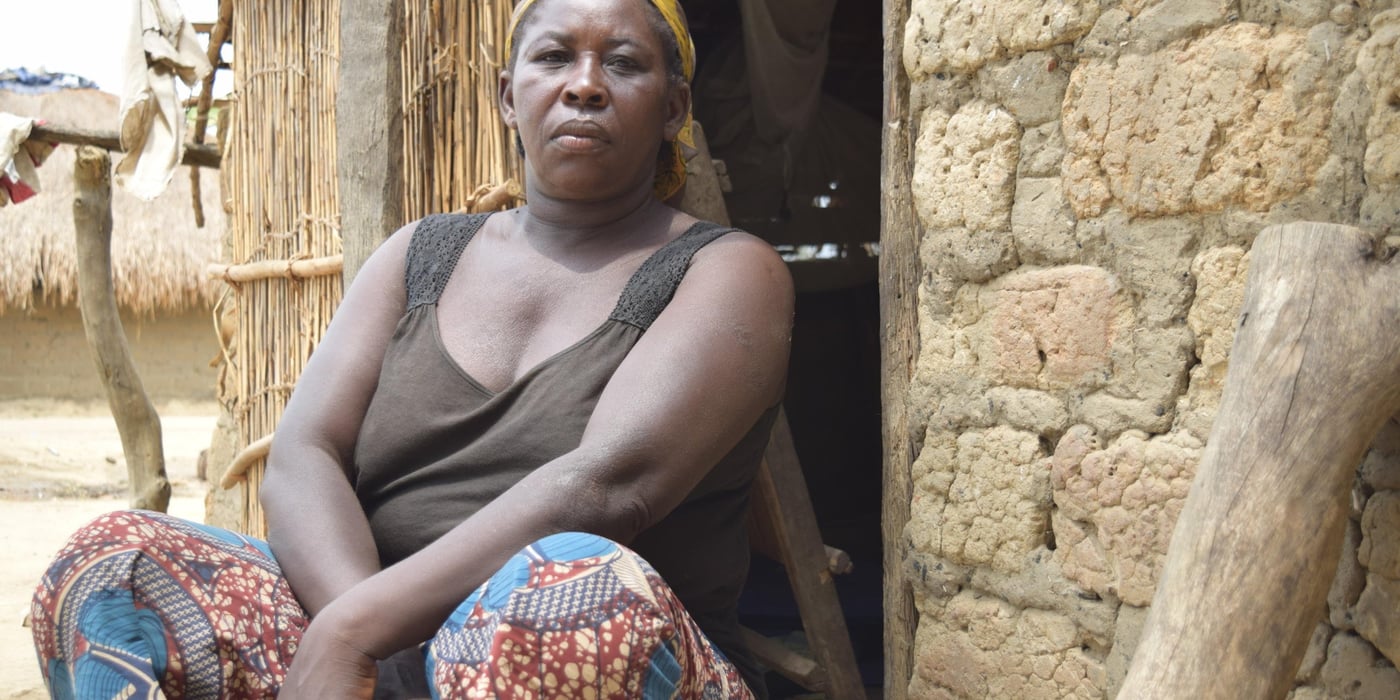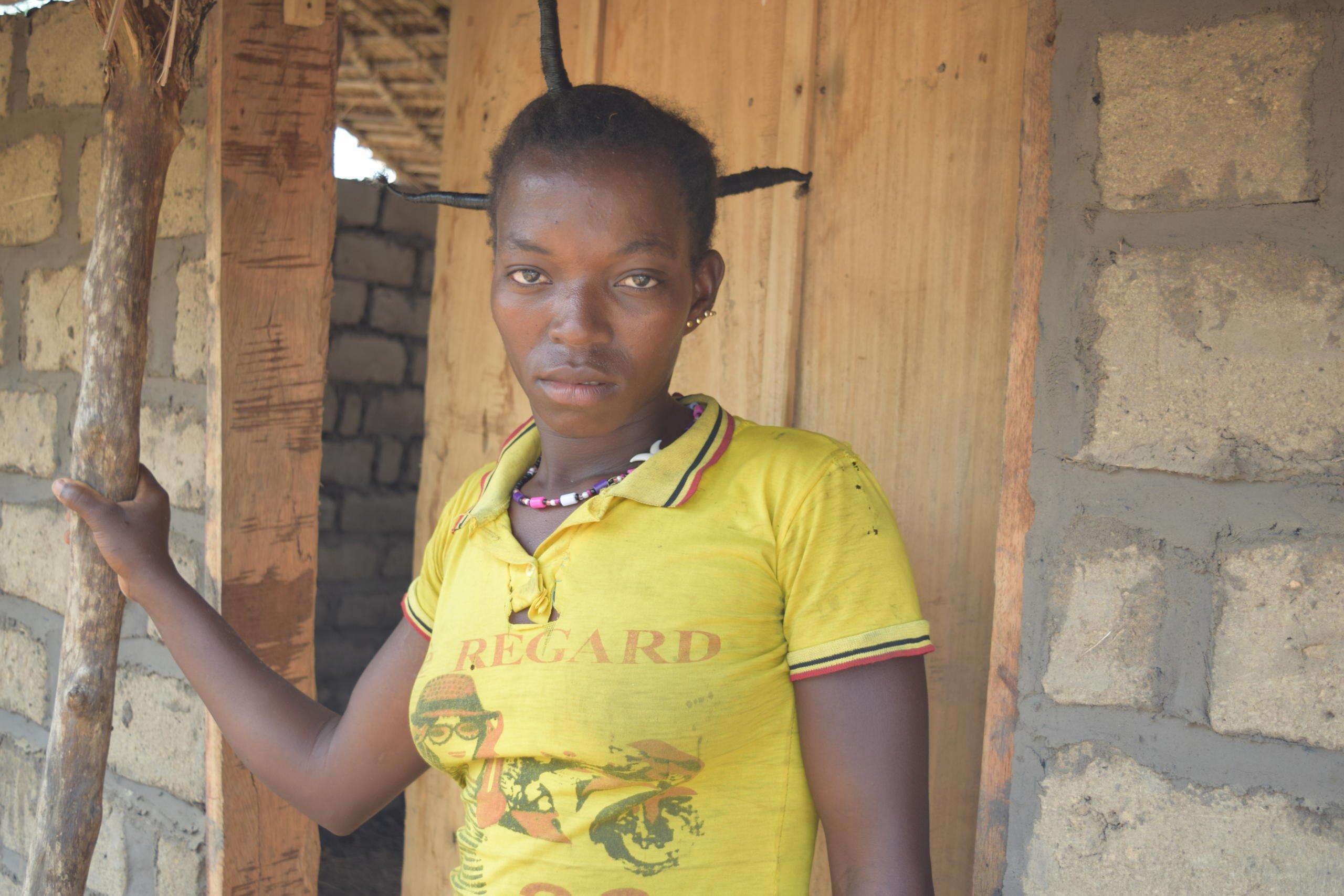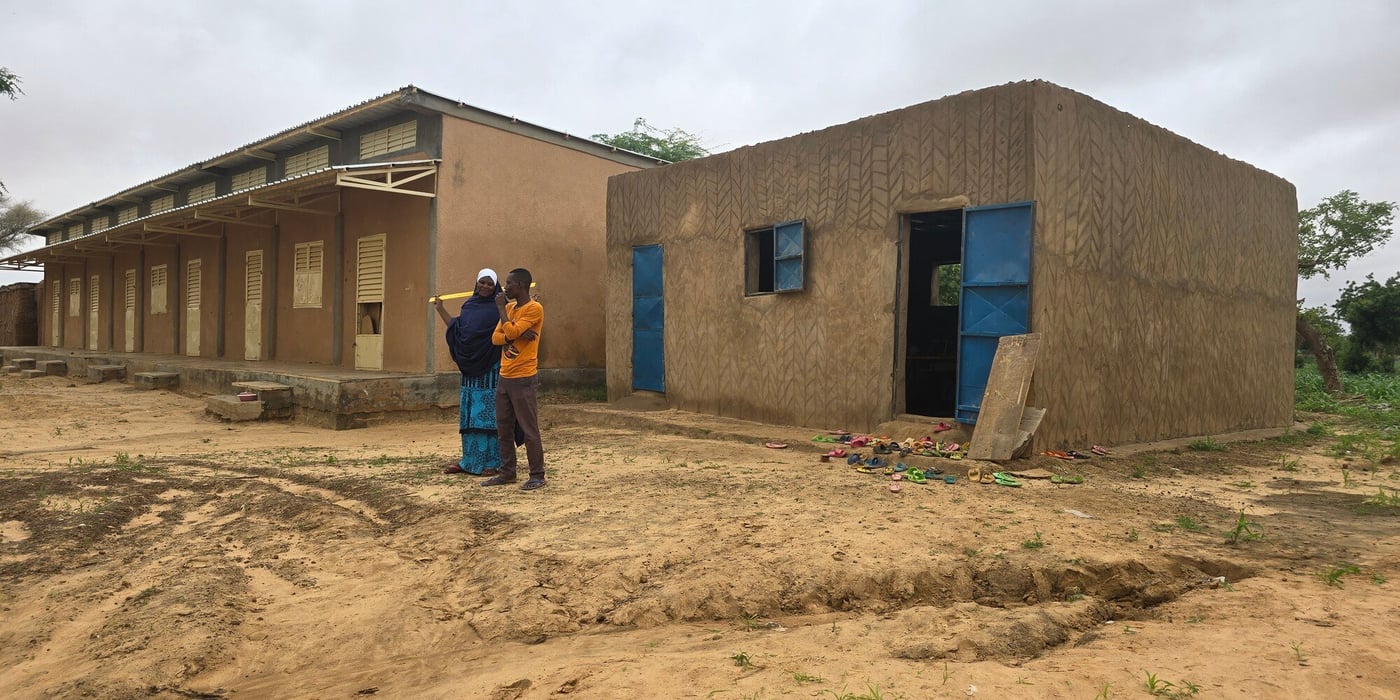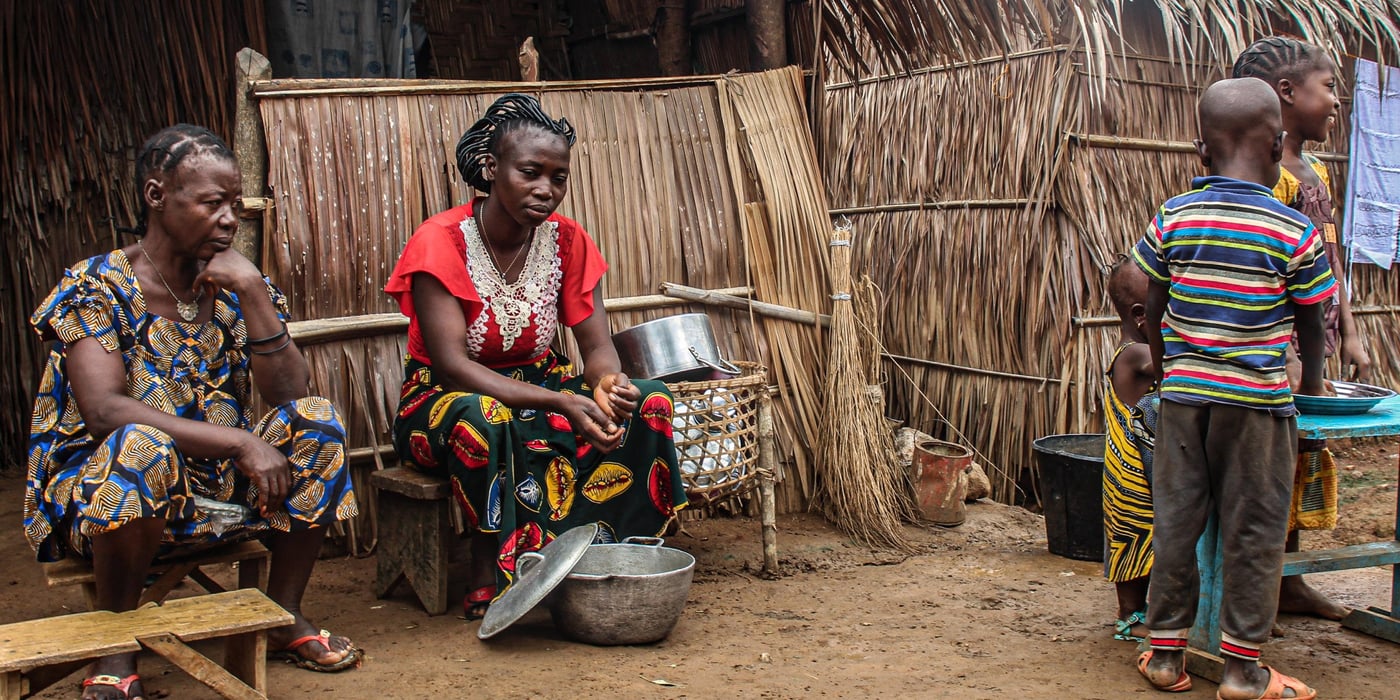
CAR has been mired in crisis since 2013, when the Muslim-dominated ex-Seleka coalition took power, provoking violent clashes with the predominantly Christian anti-balaka group. This led to intercommunity violence, deeply affecting the southern province of Ndjoukou. Schools, health centres and houses were looted and burned by armed groups. People fled with few items, and everything they left behind was lost.
In this southern region of CAR, many people became refugees by crossing the river and entering the Democratic Republic of the Congo. This is the case of Audrey and Marguerite, two women who left their village in 2014 after armed clashes broke out. After calm was restored in 2015, they returned home only to find their houses seriously damaged.
Both were selected by our organisation to benefit from house reconstruction support, funded by the US Agency for International Development (USAID). We were able to provide building materials, and pay masons to rebuild the house.
Audrey lived in an abandoned house in a state of very advanced ruin while her husband was looking for a job in Sibut, the main town of the province. “I had to stay there; there was no alternative to have a roof''. With her new house, Audrey can finally begin to look beyond today and make plans: “As soon as I have some money, I will extend the house, because I want to have children in the future”.
“Without a home, there is no life”Marguerite

Marguerite’s house was not fully destroyed so she could still live in it with her two children. The damage was so severe, however, that when it was raining they had to stand up not to be wet. She had lost everything when fleeing her house, and until this day she often cannot afford more than one meal per day. She is thankful, though, to have a home. ''Without a home, there is no life” she says. With her house being reconstructed, she and her two children can now sleep properly.
Community supports the most vulnerable
Unlike Audrey and Marguerite, some people are not able to manufacture their own bricks, needed to complete the house reconstructions. Community groups, consisting mainly of young people, have been set up to support them in this task.
"We do what we can, in the way we can. It's not our job, but we do it to help our parents who are vulnerable," said Raphael, a representative of the youth group in the village of Sidi-Bac, while handling a brick.
This group of young people has been set up to support people who benefitted from house reconstruction support from our team in the village of Ngadroukedja in the province of Ndjoukou. The group supports the most vulnerable communities, such as women, people with disabilities and the elderly, who are not able to make or acquire their own bricks.
Not having enough money, Adrienne repays her helpers with coffee instead. ''I am working in the field and the daily pay is not enough, so with what I earn I prepare coffee for the young people who make my bricks for the construction of my house,'' she explains.
Thanks to the support of her community, she will be able to settle back in her house in the coming months and restart her life.




